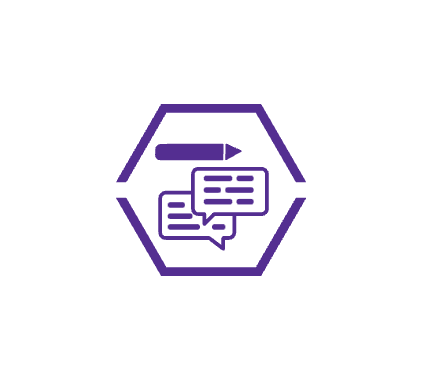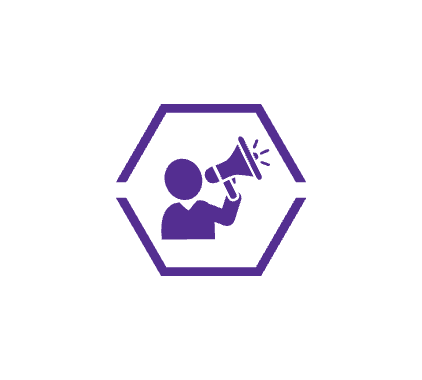What is Content Marketing?

Getting the message out about your company often requires the creation of content. Unlike advertising, which explicitly pitches products and services to an audience, content marketing represents an alternate path that can help you attract more potential customers while simultaneously building stronger relationships with them.
In this blog, we explore what content marketing involves, the benefits it can bring to your business, and the best practices necessary to get the most out of your efforts.
The Content Marketing Process
Simply put, content marketing involves sharing free, useful content to attract attention, generate leads, and increase brand awareness. The approach is becoming increasingly popular among businesses, with a 2022 survey finding that 71% of B2B marketers say content marketing has become more important to their organization in the last year.
Variety is crucial, with modern content marketing strategies aimed at avoiding putting all your eggs in one basket. B2B content can come in many forms, including blogs, videos, podcasts, infographics, and eBooks, each of which has an area or target audience to which it is most applicable. Video, for instance, is particularly handy on social media platforms, where it can rapidly grab attention. At the same time, long-form blog posts cater to those looking to expand their knowledge of the subject.
No matter the form, when creating content, it is vital to focus on quality while providing thoughtful, relevant, and engaging information. Achieving that quality means beginning with careful research, regardless of whether the content creator is already an expert on the topic at hand.
A hefty 92% of B2B and B2C marketers think of their content as their most valuable marketing asset. However, that doesn’t mean much without a means of distributing it to a target audience. While some traffic is generated organically, businesses can’t rely solely on SEO. Instead, social media channels are an ideal way to publicize content and drive traffic back to a website. The algorithm that decides which content is shown to whom can be fickle, however— gathering customer emails directly via methods such as newsletters and email campaigns is an effective way for organizations to share content directly with a target audience and avoid any gatekeepers.
The Benefits of Content Marketing
Producing quality content usually isn’t a business goal in and of itself. Instead, that content is expected to help achieve a business’ objectives.
In publishing a blog, for instance, the goal is to drive traffic to your company website, increase brand authority, and ultimately generate leads. Sharing the blog on social media or attracting more organic visitors by applying search engine optimization (SEO) can help achieve this goal. But no matter how visitors arrive on a website, marketing content will only help drive sales if it is relevant, high-quality, and engaging enough to entice those users to stay and visit other pages of your website.
Attracting leads this way is more cost-effective than most other marketing strategies. Indeed, one study found that content marketing generates over three times as many leads as outbound marketing while costing 62% less. Despite the startup costs, once the content exists, it can be maintained as a continual source of potential customers. And by identifying and targeting a specific niche audience, companies can effectively reach the consumers most likely to buy their products or services.
Quality content can also attract a community of loyal customers to a brand. By maintaining a loyal customer base and consistently offering them new videos and blogs, businesses gain a ready-to-go base of potential customers to draw from.
Content Marketing Best Practices
For organizations interested in unlocking the benefits of content marketing, there are a few things to bear in mind. Companies should start by setting clear and achievable goals for their content marketing efforts, helping them to then create a plan tailored to their ambitions. Different approaches will be necessary when focusing on increasing brand awareness versus generating leads, for instance.
Additionally, the target audience should always inform the content. By conducting regular research on target user groups, businesses can uncover the topics they most care about as well as the types of content they prefer to consume and the places they visit to do so. It’s only with that information at hand that organizations can create engaging content and share it effectively.
As mentioned previously, quality is king when it comes to content marketing. In the B2B space, potential customers won’t be fooled by poorly researched or low-quality content. And considering that 51% of the businesses that invest in content marketing publish content daily, it’s vital that companies looking to successfully stand out from the noise by creating interesting, informative, and engaging content.
Of course, creating all that content across the many different formats we’ve previously mentioned may seem overwhelming— which is why it’s a good idea to repurpose content into various forms to help it meet its maximum potential.
Engage Your Audience
There’s a reason why content marketing is only increasing in popularity. By enabling businesses to reach and convert a target audience into customers with nothing more than a blog, video, or eBook, content marketing is a cost-effective method of increasing a business’ profile and building an engaged community of potential leads.
However far along you are on your content marketing journey, it’s a good idea to take stock of how your efforts currently stack up. Get in touch with our team to identify opportunities for refinement and improvement, helping you to become confident with your content marketing.

 Content Marketing
Content Marketing Messaging and Positioning Accelerator
Messaging and Positioning Accelerator Guest Expert Speaker
Guest Expert Speaker Reviews and Testimonials
Reviews and Testimonials Success Stories
Success Stories News, Awards & Recognition
News, Awards & Recognition Blog
Blog Podcast
Podcast